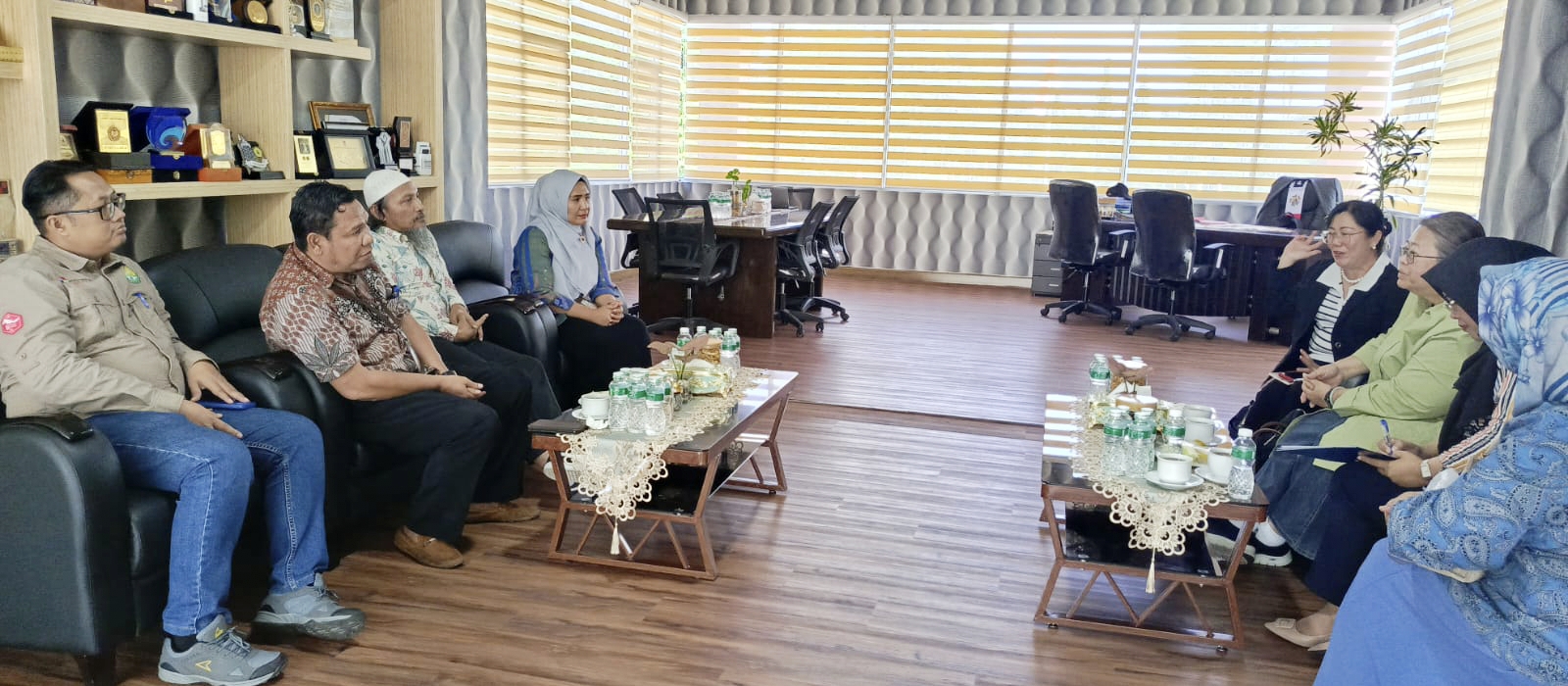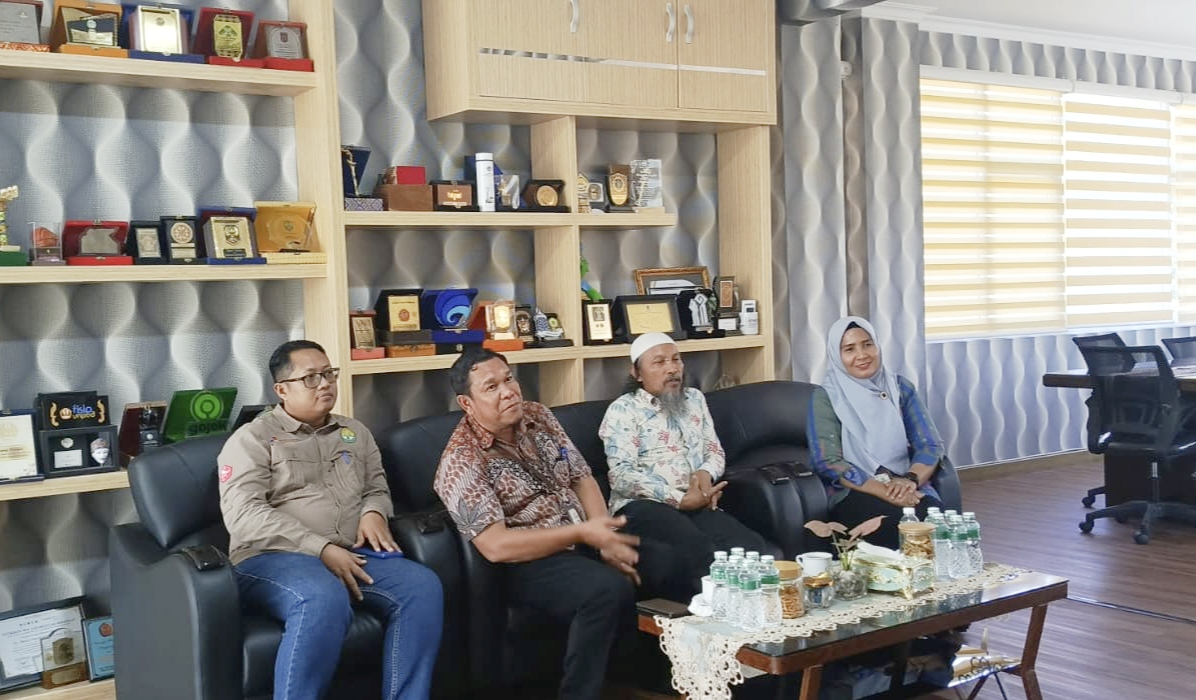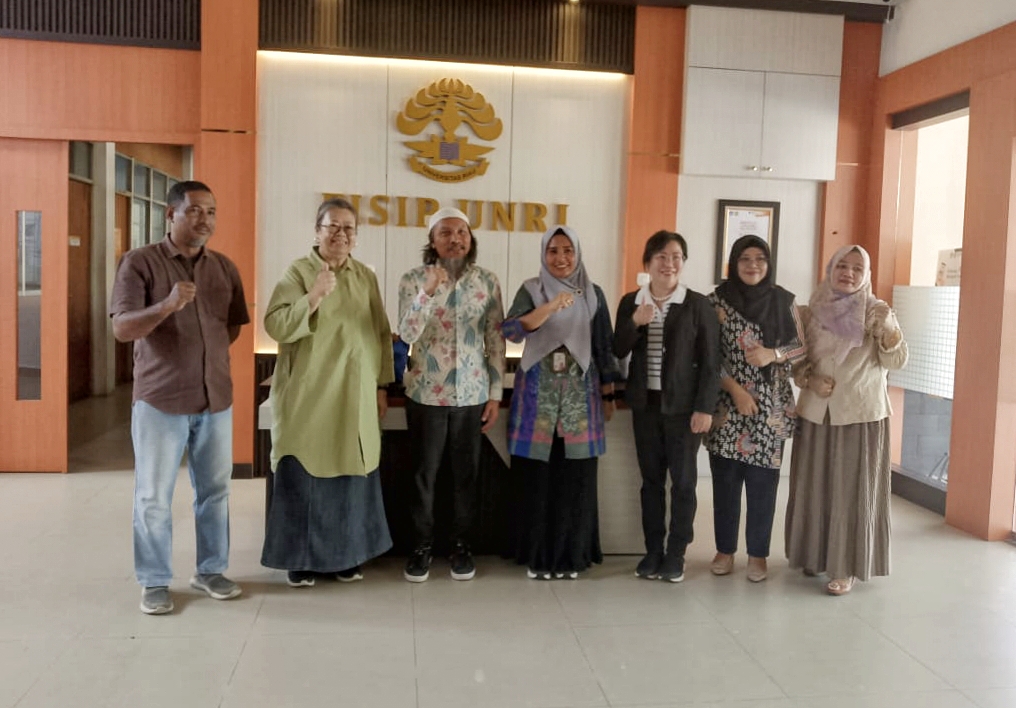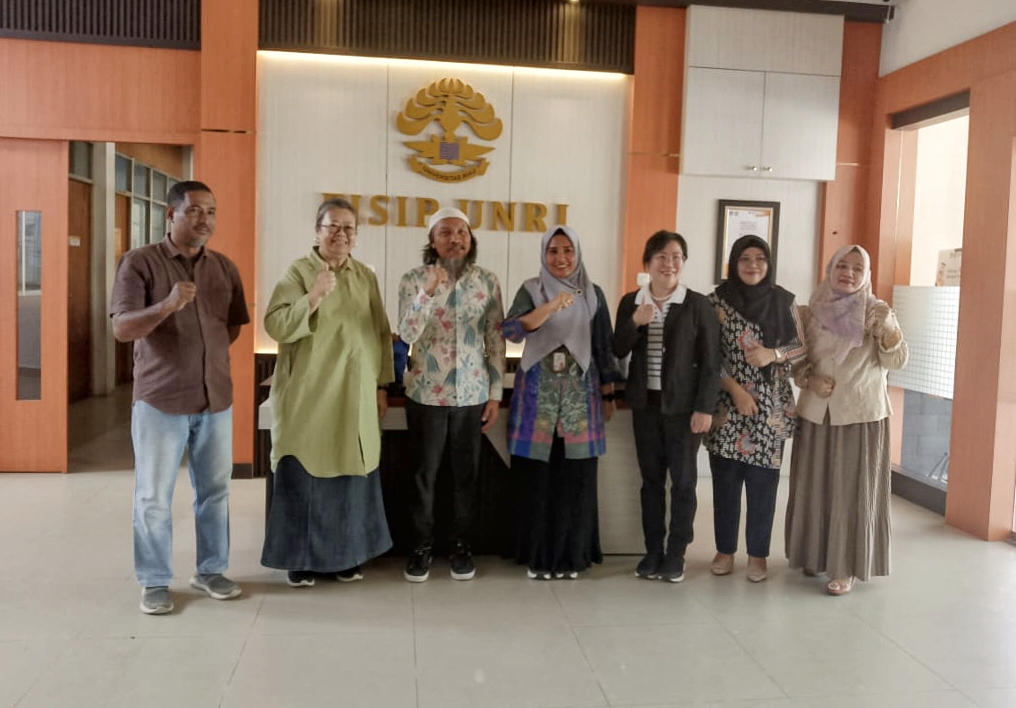On October 22, 2024, the Faculty of Social and Political Sciences (FISIP) of Universitas Riau had the honor of welcoming a distinguished guest from Universiti Kebangsaan Malaysia, namely Associate Professor Dr. Chan Kim Ling. This visit was part of the International Symposium on Environmental and Energy Policy (ISEEP) hosted by FISIP Universitas Riau on October 24, 2024. Associate Professor Dr. Chan Kim Ling, an expert in Social Sciences-Sociology, was invited as a speaker at the event.
Dr. Meyzi Heriyanto, S.Sos., M.Si, the Dean of FISIP Universitas Riau, expressed gratitude for the valuable visit from Universiti Kebangsaan Malaysia, especially to Associate Professor Dr. Chan Kim Ling and his team. The presence of these international guests is expected to provide strong momentum for fostering closer international cooperation and enhancing the quality of education at FISIP Universitas Riau.

The collaboration between FISIP Universitas Riau and Universiti Kebangsaan Malaysia in implementing international research and community service is anticipated to bring great benefits. Cross-border collaboration will not only increase the visibility and reputation of higher education institutions but also allow for the exchange of ideas and innovative breakthroughs related to environmental and energy policies.
The presence of visiting professors like Associate Professor Dr. Chan Kim Ling can offer diverse perspectives and valuable experiences to both students and faculty at both universities. Discussions and guest lectures from visiting lecturers and staff from partner countries can also provide new insights that enrich the curriculum and teaching at FISIP Universitas Riau.
Student exchange between universities is also a crucial aspect of international collaboration. Students participating in such exchanges will gain different learning experiences and develop an understanding and appreciation of the cultural diversity and educational systems of the partner countries.

The joint organization of seminars and collaboration in publishing scientific articles reflects a commitment to sharing knowledge and research outcomes with a broader audience. This initiative can strengthen academic networks between the two institutions and contribute to addressing complex issues related to the environment and energy policy.
This visit is not merely a temporary collaboration event but is expected to lay the foundation for larger and more sustainable collaborative projects in the future. The opportunity to combine knowledge and resources from two different institutions can create a much greater positive impact than working independently.


-Enggy-MH, Ft:Iwan-
